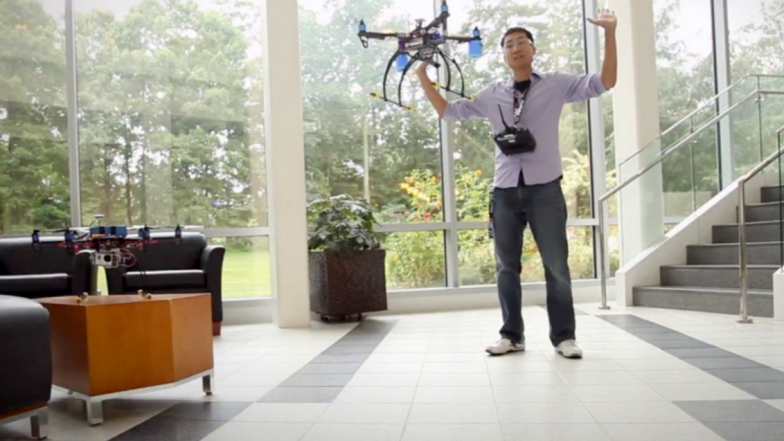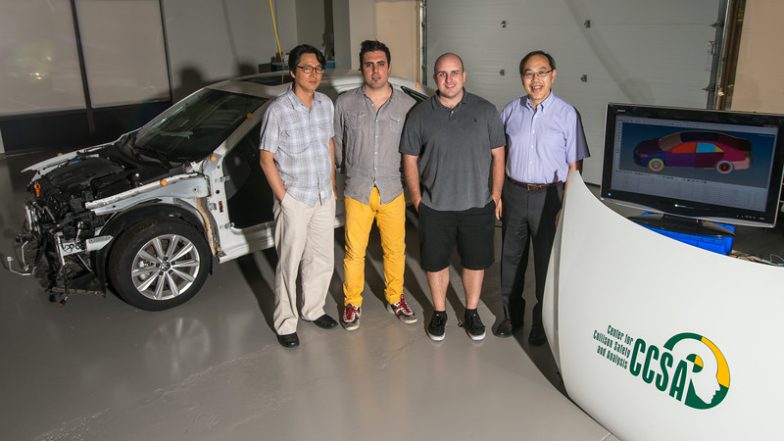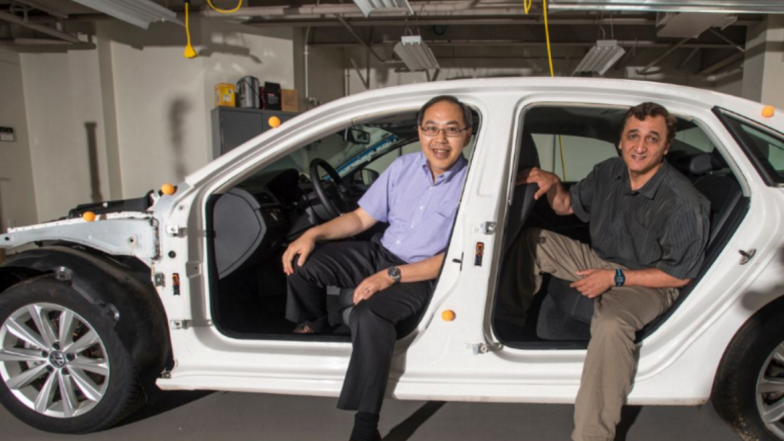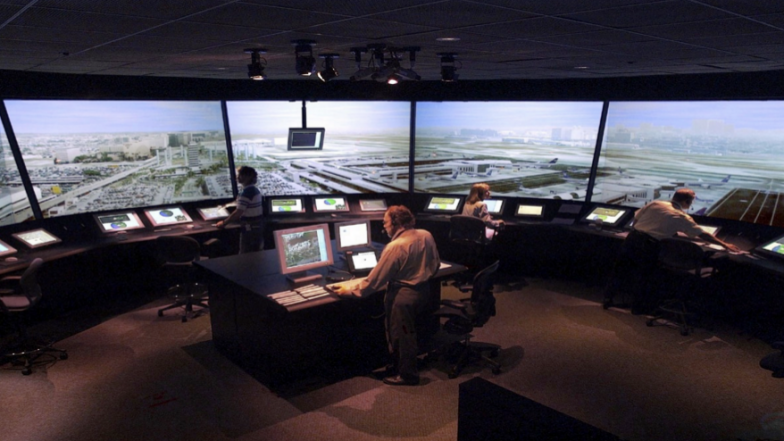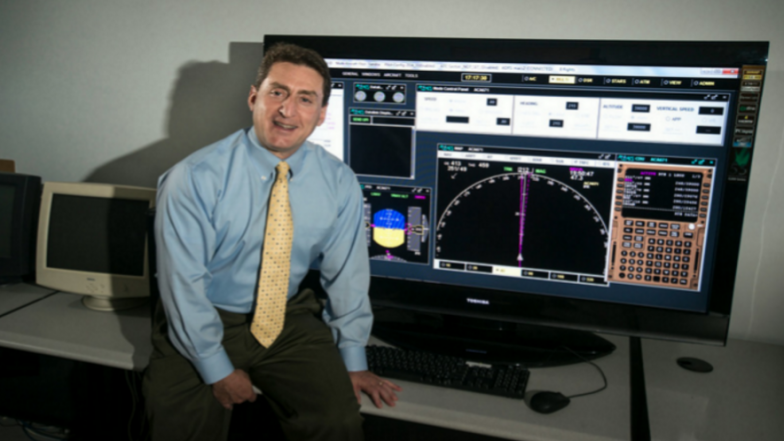Research Centers
Center for Collision Safety and Analysis
The Center for Collision Safety and Analysis (CCSA) at George Mason University brings together a strong and richly experienced team of scientists and engineers focused on using advanced technology to understand collisions involving transport vehicles and to develop means to avoid or mitigate them to enhance safety and security. CCSA is associated with the College of Science at George Mason University and the National Center for Manufacturing Science (NCMS).
Center for Air Transportation Systems Research
The center encourages excellence in education and research in air transportation systems engineering. Its work includes transportation network-of-networks simulation, optimization, and analysis; complex adaptive systems simulation and analysis; airport and airspace simulation and performance analysis; and rare-event safety analysis for systems and devices.
Center for Discovery Science and Health Informatics
The Center for Discovery Science and Health Informatics conducts research on computational methods to improve health care costs, quality, safety and effectiveness. Among the areas of focus: Creating methods for intelligent health care data analysis; creating methods for patient-oriented health care decision support; conducting health services research; creating methods for individualized comparative effectiveness; applying new methods to solve problems in health data management, data integration and knowledge discovery to support health information exchange; and developing and testing analytic methods that support decision-making and the meaningful use of health data.
Center of Excellence in Neuroergonomics, Technology, and Cognition
Launched with funding from the Air Force Office of Scientific Research and the Air Force Research Laboratory, this center researches neuroergonomics, which is the study of the human brain in relation to performance at work, transportation, and other everyday settings. Neuroergonomics has two major goals: To advance understanding of human brain function in relation to mental and physical processes and performance in real-world tasks; and to use existing and emerging knowledge of human performance and brain function to design technologies, systems, and environments for safe, efficient, and enjoyable work.
International Center for Applied Studies in Information Technology
The center focuses on delivering high-yield, low-unit-cost results from information and communications technology, especially in the context of developing nations. It has worked with nearly 100 businesses, associations, government agencies, and multilateral organizations in 30 countries on projects that included knowledge management, electronic commerce, distance learning, and website development. The center is committed to combining information technology with better management of institutional knowledge to change organizational cultures so that increased collaboration yields more efficient operations and performance.
Learning Agents Center
The center conducts research on the development of cognitive assistants that learn complex problem-solving expertise directly from human experts. It also works with experts and nonexperts in problem-solving and decision-making. Top research areas include instructable agents, evidence-based reasoning, multistrategy learning with an evolving knowledge representation, graphical user-interfaces, integrated logic and probabilistic reasoning, mixed-initiative reasoning and collaborative problem-solving, modeling experts’ reasoning, learning-based knowledge engineering, natural language processing, and intelligent tutoring systems.
The Machine Learning and Inference Laboratory
The Machine Learning and Inference Laboratory conducts research on the development of intelligent systems capable of advanced forms of learning, inference, and knowledge generation, and applies them to real-world problems. Major research areas include: theory and computational models of learning and inference; data mining and knowledge discovery; machine learning and natural induction, inductive databases and knowledge scouts; and behavior modeling and computer intrusion detection.

